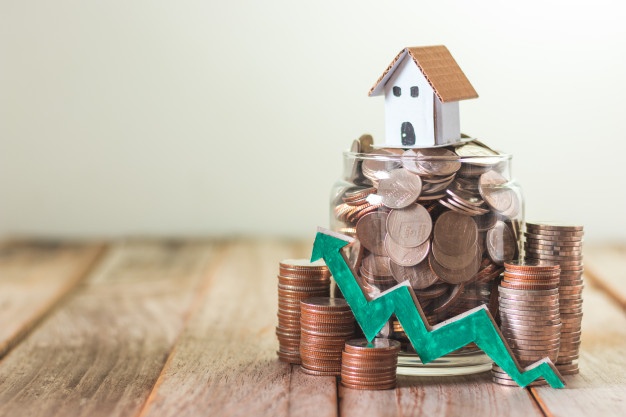As a foreign investor, you have many good reasons for buying an investment in Kenya. Firstly, the opportunity for rental income and price appreciation. Though there’s no guarantee, the long-term outlook has generally been positive for any property investor.
For foreign nationals buying an investment in Kenya, the process isn’t easy. Moreover, smart investors get help from real estate brokers, mortgage experts, and homebuilders. When you buy a property directly from a builder, you’re dealing with a professional seller rather than an individual homeowner, who may have an emotional attachment to the property.
“An investment doesn’t have to be an emotional process.“
Shopping for Investment Property
The best way of buying an investment in Kenya is to visit builders’ sales offices and tour their model homes. A model home is a newly built home with all the bells and whistles that the builder has set up to show the home at its best.
The model is complete and decorated with furniture, landscaping, and all the upgrades to sell the other properties.
The model is an example of the homes that the builder sells, but it’s usually not the actual home you’ll buy unless you specifically purchase a model. Instead, you’ll likely buy a base home and choose which upgrades you’d like included in it for an additional price.
If you’re unable to visit Kenya and shop for an investment home in person, you can choose to buy a home sight-unseen. The builder’s sales representative or a realtor can help you tour homes remotely with a video-calling app.
Additionally, some builders offer immersive 360 tours. These tours allow you to walk through a home virtually as if you were there, even if the home hasn’t been built yet.
Some builders sell brand-new homes that are already completed. These homes are called “standing inventory” and they’re ready for you to buy with upgrades the builder has selected. If you want to buy a newly built home without waiting for it to be constructed, standing inventory may be a good choice for you.
Financing an Investment Property
If you choose to pay cash for your investment home and closing costs, you won’t need a mortgage to buy a home in Kenya. You will, however, need to show the builder that the cash is in the country or that you can transfer it quickly.
If you want to finance part of your purchase price, you’ll need to get a loan from a bank, mortgage company, or other lenders. Ask the lender what types of documents you need. Many banks require a KRA pin, Kenyan credit history, and/or other financial information.
The [international buyer] you may need to provide documentation from your own country as to your income and assets, along with letters of reference from their banking institutions.
Most lenders also require international investors to make a substantial downpayment to obtain a home mortgage in Kenya.
Signing a Purchase Contract
International investors should know two things about signing a purchase contract to buy a home from a Kenyan. builder.
First, once the contract signed, the negotiation is over.
In some countries, they sign the agreement, then start negotiating. In the Kenya., when a contract is signed, that is the end of the negotiation.
Second, a deposit is required. Usually, it’s 30 to 50% of the purchase price. Once the contract contingencies are satisfied, the deposit isn’t refundable, even in extraordinary circumstances.
Once you remove all the contingencies, the deposit ‘goes hard’ and you no longer can get it back. If you don’t abide by the terms of the agreement or don’t move forward as planned, the deposit is forfeited.
When the deal is ready to close, you’ll have to sign some documents. Most can be signed electronically, so you won’t have to be in the country for those. Some will require a physical pen-and-ink signature.
If you can’t visit Kenya. to sign these documents in person, you’ll have to authorize someone else to sign them for you. To do that, you’ll have to sign a legal form giving someone you trust permission to sign on your behalf. The form is called a Power of Attorney (POA). Your builder, lender or title company should be able to provide a POA form for you to use.
Managing Your Investment Property
First, you should know that if you’re planning to rent out your investment home, some areas have rental restrictions. Some homeowner associations (HOAs) prohibit rentals until the owner has lived in the home for a certain length of time, such as two years. Some also limit or prohibit short-term rentals, such as Airbnb, or require that if you use such programs, you may only rent to long-term tenants.
The best way to manage Kenya property from outside of Kenya is to hire a property manager. A manager can find tenants, collect rents, handle maintenance and repairs, and help to safeguard your investment for you.
A property manager who speaks the owner’s language is very important and can make ownership a pleasure.
Newly-built homes usually don’t need many repairs, but if something breaks, your property manager can make sure it’s repaired quickly. Your tenants will expect that, and it can help to protect your investment.
Let’s say there’s an emergency plumbing situation and you’re [in a time zone] that’s nine hours or 12 hours ahead. The tenant can’t wait for you to wake up and schedule a repairman. A property management company can fix an issue in a couple of hours, which is much more reasonable.
Most builders provide a warranty that covers certain repairs to the home for a certain period, such as one year. Manufacturers’ warranties usually cover new appliances inside the home for a period, too.
All homes require maintenance to keep them in good condition. Your property manager can arrange for tree trimming, snow removal or other services, and let you know the costs. The nicer the property looks, the higher rent and better tenants, you’ll get.








